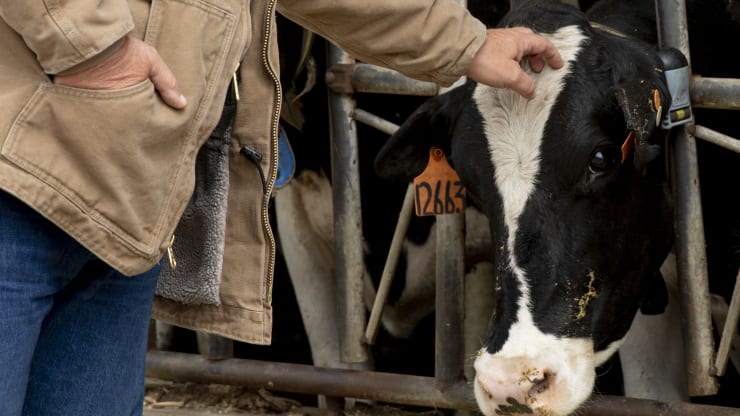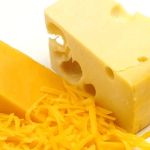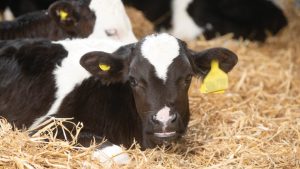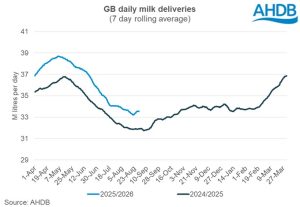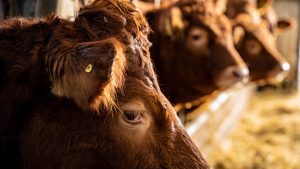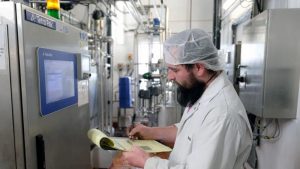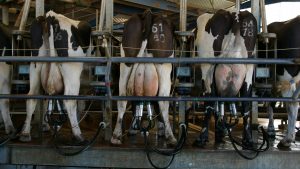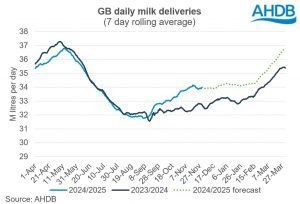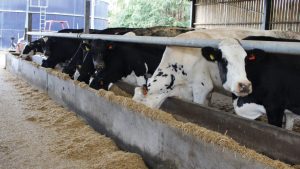
Father Tom and son Robert Parkin, share the duties on this 350acre unit, which relies on a further 50 acres of rented ground, while Tom’s wife Eileen, feeds the calves and does the book-keeping. Daughter Fiona and Robert’s wife Karen, also help out when required.
In all, the farm is home to 175 Holstein cows plus followers and run a flock of 140 ewes and 500 lambs to finish. Cows are milked twice a day producing a rolling average milk yield of 9700litres at 4%BF and 3.2%P – up just shy of 3000litres since the first improvements were made, almost 10 years ago.
Up until 2009, the business relied upon a 115-cow herd milked in an outdated 6 x 12 herringbone parlour, which at that time could take up to three plus hours in the morning and the same at night to milk. This was upgraded to a new all singing all dancing computerised 12-24 swing-over Fullwood parlour that not only reduced overall milking times to two hours with an additional 60 cows, but also enabled improved management of individual cows.
Cows are again fed in the parlour according to yield and topped up in the housing shed with a TMR depending on their lactation stage, with the herd now split into four groups – high and low yielders, first calvers and dry cows.
New cow sheds with longer 9ft cubicles and mattresses topped up with fresh, clean sawdust twice a day, have also led to improved cow comfort and reduced mastitis, while a Lely robotic scraper that cleans the passages every hour has significantly curtailed feet and leg issues.
“The new sheds have been built up around the new parlour have unbelievably supported cow flow, reduced milking times which in turn has enabled us to increase herd numbers,” said Tom.
Cows are also now housed 24/7 in new, lighter, airier cow sheds for improved cow comfort. Particular attention is also paid to the cubicles too with dirty sawdust removed twice a day.
Robert added: “The new layout has without a doubt had a colossal impact on the health and wellbeing of the cows. They are happier and healthier being housed in a better, airier shed. They also have bigger cubicles that are more comfortable to lie in which in turn has increased performance.
“Cows are so much easier managed kept inside all year round and milk yields, fertility and feet problems have all improved since we started housing them 24/7. Cows are also lasting longer too, with most giving an extra lactation.”
Milking cows are housed in the new cow shed next to the parlour, while the dry cows and in-calf heifers are kept in the original cubicle shed.
Splitting the milking group up has also helped boost performance especially amongst the first calved heifers which are kept separate from the main herd until their yields drop significantly when they then join the low yielding batch.
Tom added: “Grouping really helps us manage the heifers better as they are no longer bullied by some of bigger, stronger cows.”
Cows are dried off two months before calving onto round bale silage and dry cow nuts.
Using sexed semen on the heifers and second calvers has made a huge difference to the productivity and overall herd efficiency at Higher Daviesdykes too, with the family now having heifers to sell instead of having to buy in replacements. Furthermore, the Parkins are seeing a faster rate of genetic improvement by selected sexed semen from high genomic sires.
And by using sexed semen on the two youngest ages of females to produce herd replacements, they can further increase productivity by using beef sires, either Aberdeen Angus or British Blue on the older cows, which in turn are now sold as forward stores compared to finishing them as bull beef.
“The bull beef wasn’t adding up for us, but we just have 16 remaining, with beef calves now kept for 14-17months and sold as stores at around 520kg liveweight,” said Tom adding that the business has sold 40 stores since January to average £1000.
All year-round calving ensures a consistent supply of milk which is supplied to Muller on a Tesco contract, calves get their mothers colostrum for at least three days. Cows are vaccinated for BVD and Lepto and tested for IBR. Clyde Vets visit every fortnight to look after fertility.
All dairy cows and stores are fed a Davidson Animal Feeds diet, with silage samples taken by senior dairy nutritionist, John Rogers, to ensure a balanced feed ration according to the analysis. This is then matched up with a Davidson’s meal using their Ultramix ration programme.
Milking cows are topped up in the parlour with Elite 18 Total XP nut, which incorporates all the essential trace elements in an organic form designed to meet dietary demands of the dairy cow. Total XP includes Selplex (Selenium enriched yeast), Bioplex (zinc, manganese, copper, iron and cobalt), Biotin (B vitamin involved in hoof health and milk synthesis) and Titan (yeast for enhanced rumen function) all of which work to improve the health of their dairy cows.
Three cuts of silage are completed through the summer, 200 acres first and second cut, with 50 acres third cut to be fed to heifers.
Over the last 10 years, the Parkin family has been working towards a more productive, efficient business, breeding strong, robust cattle for their new modern dairy and it is undoubtedly working.
“We are really happy at the way the farm has worked out and just hope the cows continue to milk well,” concluded Tom.
